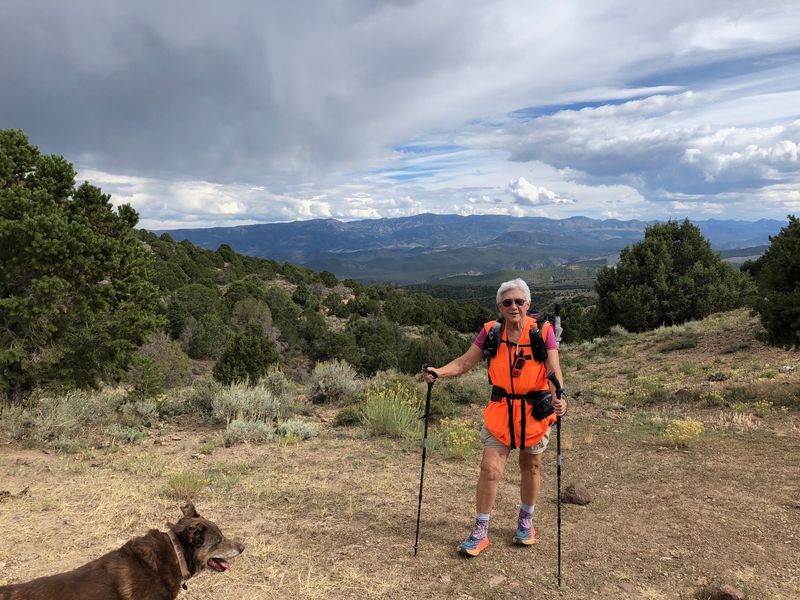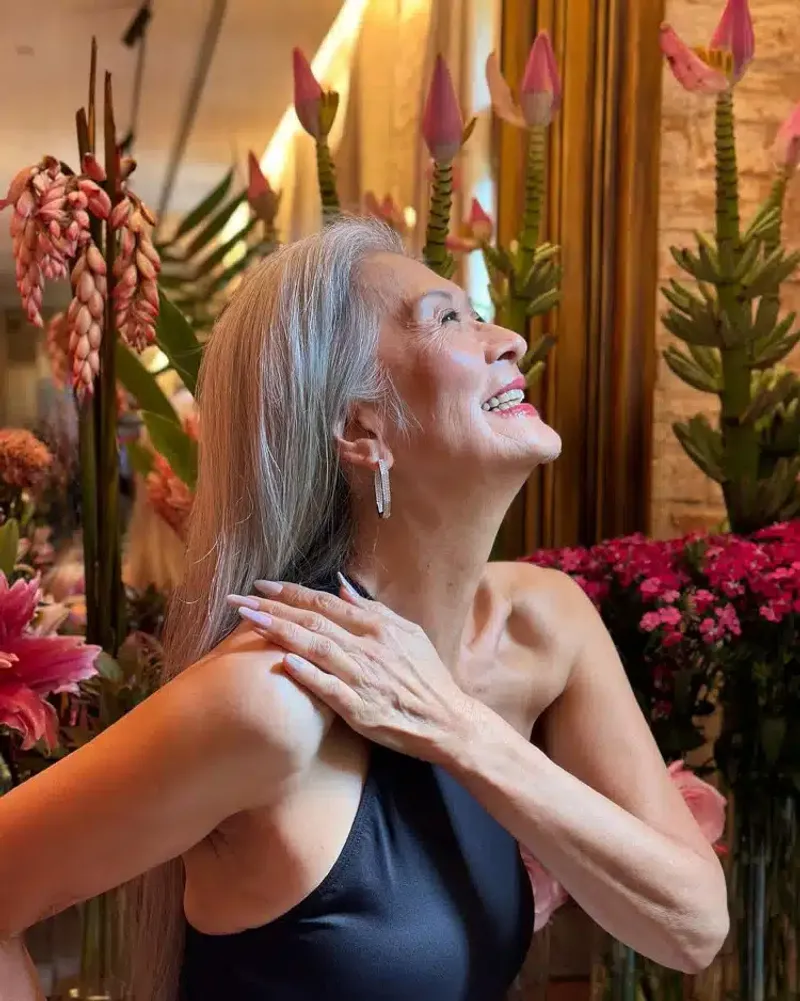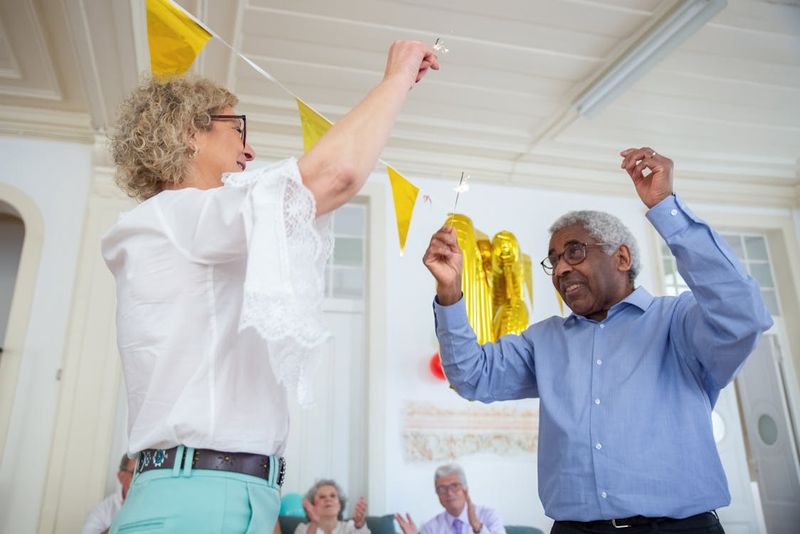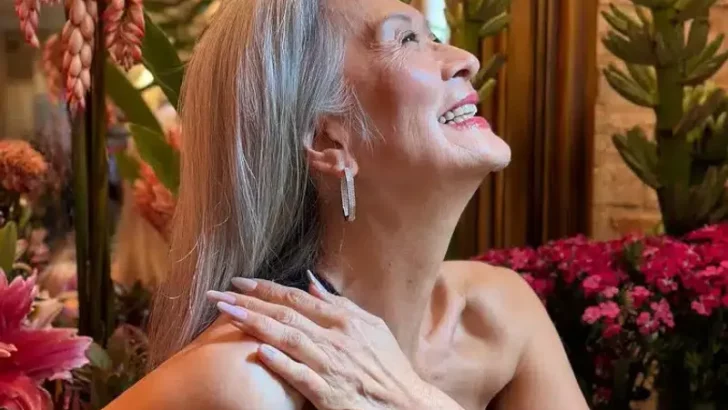Communicating respectfully with individuals over 60 is essential to maintain their dignity and self-esteem. Certain phrases, even if unintentional, can be perceived as patronizing or dismissive. Here are some expressions to avoid:
1. You’re too old to do that.

Telling someone they’re too old to do something limits their sense of independence. Picture an elderly individual, hiking determinedly up a mountain trail. Such vitality contradicts the stereotype of helplessness. Encouraging pursuits without assumptions about capability fosters empowerment and dignity. Offer support, not limitations, to celebrate their enthusiasm and interests. This approach respects their autonomy and nurtures self-esteem. Remember, age doesn’t define potential. Those over 60 often enjoy activities once deemed out of reach, proving age is just a number. By supporting ambitions, rather than questioning them, you help preserve their sense of purpose and vibrancy.
2. You look good for your age.

While often meant as a compliment, telling someone they “look good for their age” implies surprise at their appearance. Picture a 65-year-old woman at a social gathering, dressed elegantly, exuding confidence. Complimenting beauty without mentioning age respects their identity. Age-based compliments can diminish self-worth. Instead, acknowledge their style or presence outright. This approach reflects appreciation without unintended condescension. Celebrate beauty universally, not as an age-related achievement. Many older adults take pride in their appearance, relishing fashion and grooming. Embracing this without age labels empowers them. This fosters a gracious, inclusive interaction.
3. You are just getting forgetful.

Comments about forgetfulness can sting, emphasizing perceived inadequacies. Yet, many older adults retain sharp intellect and wit. Imagine an elderly man, engrossed in his book, reflecting wisdom. Such imagery counters negative stereotypes. Be patient if forgetfulness arises, offering understanding rather than critique. This promotes a nurturing environment, honoring their experiences and insights. Memory lapses aren’t exclusive to age; everyone experiences them. Offering gentle reminders or assistance respects their dignity, fostering mutual trust. Instead of highlighting forgetfulness, celebrate their wisdom and life stories, enriching conversations with depth and understanding.
4. You are still working?

Questioning someone’s decision to work can seem dismissive of their choices. Picture a 70-year-old woman leading a business meeting with authority. Such imagery dispels myths about work and age. Many continue working for fulfillment or necessity. Open-ended inquiries about their career invite respectful dialogue. Recognize their contributions and expertise, fostering appreciation. Older adults often bring unmatched experience and dedication to their roles. By valuing their work, you affirm their identity and purpose. Support rather than question their career paths, acknowledging the benefits they bring to any professional setting.
5. Do you know how to use that?

Assuming tech ineptitude can demean older adults. Visualize a senior man, deftly operating a smartphone, navigating apps effortlessly. Such skills defy stereotypes of technological incompetence. Many are tech-savvy, embracing digital tools with enthusiasm. Offering help, rather than questioning ability, nurtures respect. Appreciation for their willingness to adapt enhances interactions. Technology bridges generations, fostering connection and learning. Encouraging exploration of new gadgets cultivates empowerment, fueling curiosity. Supportive, not patronizing, approaches enhance their confidence in tech endeavors. Celebrate their adaptability and curiosity, reinforcing their value in modern digital landscapes.
6. You must be lonely.

Assuming loneliness overlooks vibrant social lives many older adults lead. Picture a lively picnic, with elderly friends sharing laughter. This challenges the stereotype of isolation. Engage meaningfully, honoring their rich networks and friendships. Many cherish deep connections, enjoying fulfilling activities with peers. Asking about social interests invites genuine conversation. Highlighting their social vibrancy respects their autonomy. Isolation isn’t a given with age. Celebrate their engagements, recognizing their active, fulfilled lives. Appreciate their stories and experiences, and the companionship they cherish. This fosters mutual respect and understanding, enriching interactions.
7. Act your age.

Telling someone to act their age implies constraints on behavior. Imagine a 65-year-old man, dancing joyfully at a celebration. Such energy defies age norms, celebrating life fully. Everyone deserves enjoyment, regardless of years lived. Embrace diverse expressions of joy, acknowledging their right to happiness. Restricting behavior based on age limits experiences unfairly. Encouragement to live vividly nurtures positivity and resilience. Life’s pleasures don’t expire with time. Applauding their zest for life enriches your connection. This supports their freedom to explore passions, honoring their journey. Celebrate their spirit, valuing every joyful moment shared.
8. You are stuck in your ways.

Labeling someone as stuck can feel dismissive. Picture a senior woman, passionately embracing a new hobby in an art studio. Such enthusiasm refutes rigidity stereotypes. Many seek new experiences, embracing challenges eagerly. Recognizing adaptability honors their openness to growth. Encourage exploration, fostering supportive environments for discovery. Change isn’t just for the young. Older individuals often pursue unexpected paths, enriching their lives. Celebrating their willingness to adapt shows respect for their journey. Their ability to innovate and learn inspires across generations, proving age isn’t a barrier to new adventures.
9. When I get that old…

Talking about aging negatively can devalue those who are older. Visualize an elderly man sharing stories under an oak tree. His wisdom enriches younger listeners. Aging isn’t a decline; it brings profound insights and experiences. Gratitude for the journey empowers those who are older. Celebrate their contributions to life’s tapestry. Positive perceptions of aging uplift spirits, bridging generational gaps. By appreciating the wisdom of years, you honor their legacy. This fosters appreciation for the shared human experience, valuing every stage of life’s journey. Embrace the richness age brings, promoting mutual respect and admiration.
10. You wouldn’t understand.

Assuming someone can’t comprehend dismisses their insights and awareness. Picture an elderly woman, keenly participating in a community discussion. Her engagement challenges assumptions of disconnectedness. Many older adults stay informed, contributing valuable perspectives. Including them enriches conversations, fostering inclusion and respect. Their experiences offer unique viewpoints, enhancing dialogue. Conversations across generations build understanding and unity. Recognizing their capacity for insight uplifts interactions, honoring their contributions. This approach reinforces their place in dynamic discussions, appreciating their ongoing quest for knowledge and connection.
11. That’s just how older people are.

Generalizing behavior based on age overlooks individuality. Visualize a group, each showcasing distinct talents at a community event. Their diversity defies monolithic stereotypes. Recognize the rich tapestry of personalities and passions that exist. Everyone’s journey is unique, regardless of age. Celebrating individuality fosters respect and connection. Older adults possess varied interests and skills, enriching communities. Challenging stereotypes invites appreciation for their multifaceted lives. By acknowledging their uniqueness, you honor their stories and accomplishments, promoting a more inclusive society.
12. You’re not old enough for that.

Telling someone they’re not old enough for something can limit their exploration. Picture a 62-year-old woman, eagerly learning to surf at the beach. Her zest for new experiences defies age expectations. Encouraging pursuits, regardless of age, fosters growth and joy. Such support nurtures confidence and self-discovery. Everyone deserves the chance to pursue dreams and interests. Celebrating their courage and determination enriches connections. By embracing their adventurous spirit, you honor their quest for joy and fulfillment, reinforcing their confidence to explore life’s myriad opportunities.

Well, hello there!
My name is Jennifer. Besides being an orthodontist, I am a mother to 3 playful boys. In this motherhood journey, I can say I will never know everything. That’s why I always strive to read a lot, and that’s why I started writing about all the smithereens I came across so that you can have everything in one place! Enjoy and stay positive; you’ve got this!

